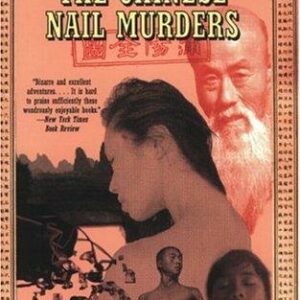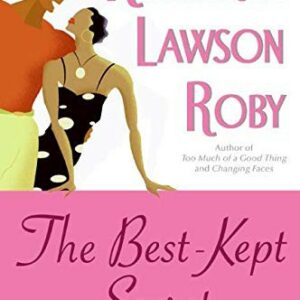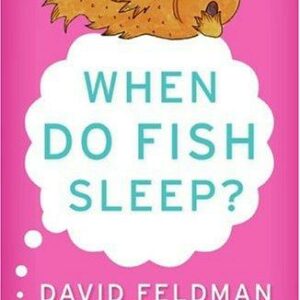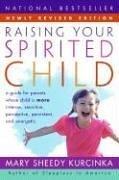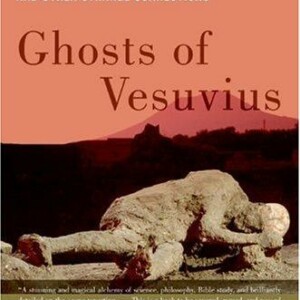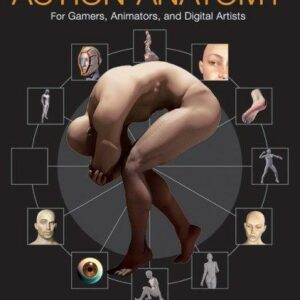Tales of a Female Nomad
$17.00
| Title | Range | Discount |
|---|---|---|
| Trade Discount | 5 + | 25% |
- Description
- Additional information
Description
The true story of an ordinary woman living an extraordinary existence all over the world.
“Gelman doesn’t just observe the cultures she visits, she participates in them, becoming emotionally involved in the people’s lives. This is an amazing travelogue.” —Booklist
At the age of forty-eight, on the verge of a divorce, Rita Golden Gelman left an elegant life in L.A. to follow her dream of travelling the world, connecting with people in cultures all over the globe.
In 1986, Rita sold her possessions and became a nomad, living in a Zapotec village in Mexico, sleeping with sea lions on the Galapagos Islands, and residing everywhere from thatched huts to regal palaces. She has observed orangutans in the rain forest of Borneo, visited trance healers and dens of black magic, and cooked with women on fires all over the world. Rita’s example encourages us all to dust off our dreams and rediscover the joy, the exuberance, and the hidden spirit that so many of us bury when we become adults.“Whenever I open an atlas . . . part of me wants to pack up and hit the road for a year or two. But I doubt I’ll ever do it, because I’m too practical. Rita Golden Gelman . . . didn’t let practicalities stop her.” —Los Angeles Times
“Tales of a Female Nomad follows Gelman from fragility to self-confidence as she traverses the globe.” —Chicago Tribune
“An exuberant homage to wanderlust.” —Kirkus Reviews
“This is a courageous, gentle, fascinating book, but be forewarned it’s no idle armchair read. Like all of the best travel writing, Rita Golden Gelman’s wanderings are likely to provoke powerful self-examination, which could easily catalyze your own wanderlust and curiosity.”
—Alexander F. Lobrano, European correspondent, Gourmet, and author of Frommer’s Irreverent Guide to Paris
“Rita Gelman takes us on a journey filled with cultural interactions and human observations. An inspirational story, particularly for anyone considering a major lifestyle change.”
— Melinda Blanchard, co-author of A Trip to the BeachRita Golden Gelman is the author of more than seventy children’s books, including Inside Nicaragua, which was one of the ALA’s Best Young Adult Books of 1988, and More Spaghetti, I Say!, a staple in every first grade classroom. As a nomad, Rita has no permanent address. Her most recent encampments have been in Mexico and New York City.Chapter One
The Beginning
1985.
I am living someone else’s life. It’s a good life, filled with elegant restaurants, interesting people, and events like the Academy Awards and the Grammies. My husband of twenty-four years and I dine with celebrities, we see the latest movies before the rest of the world, and we’re invited to all the book parties in Los Angeles.
Because of his job as an editorial consultant to some top magazines, we’ve been able to create a life that is privileged and glamorous. But now that I’m there, I realize that I don’t like feeling privileged and I’m uncomfortable with glamour. I am living in a designer world that has been designed for someone I no longer am.
I prefer Goodwill to Neiman Marcus, Hondas to Mercedes, and soup kitchens to charity banquets. My house is too big; my garden, too trim; my friends, too white and American.
I first realized something was missing about five years ago when a woman wearing a floor-length muumuu and sandals sat next to me on an airplane. She told me she was in the business of booking sailing tours for captains around the world and was returning from the Mediterranean, the Adriatic, and the Gulf of Mexico. As she was telling me about her trip, tears began streaming down my cheeks.
“I’m sorry,” I said, embarrassed. “I don’t know where that came from.” I wiped my eyes.
But I did know. I was crying for my lost spirit. As the woman spoke, I remembered that once I’d dreamed of sailing around the world, of paddling down the Amazon, of sitting around a fire with tribal people and sharing their food and their lives. I had loved the person who had those dreams. She was daring and idealistic . . . and gone. My husband had no interest in boats or tribal cultures.
“If I were to take a sailing trip,” I said to the woman, “there are three things that I would want: a salty old captain who has tales to tell and philosophy to spout, a crew that likes to sing, and a place that is rich in experiences. I hate lying around on beaches.”
She didn’t even have to think. “Go sail on the Tigris in the Galapagos Islands.”
Three months later, I boarded the Tigris without my husband, toured the spectacular volcanic islands, interacted with sea lions and blue-footed boobies, snorkeled the tropical waters, and touched the magic of otherness. I was never the same again.
When I returned from the Galapagos, that long-dormant fire of adventure had been rekindled and the glamour of my life turned gray. The gourmet dinners, the exclusive press screenings, the concerts, the parties, and the evenings at the theater suddenly felt like empty substitutes for discovery, for learning, for penetrating the unknown.
I knew that I couldn’t run around the world adventuring, not if I wanted to stay married, which I did. But after the Galapagos trip, I needed something more in my life. I came up with a compromise. I would go to graduate school in anthropology and get my adventure from books.
The timing was right. My two kids no longer needed a full-time mom. Mitch was in his freshman year at Berkeley, and Jan was about to graduate from high school.
I had a fairly successful career as a writer of children’s books. I enjoyed the wild and imaginative leaps into fantasy and the visits to schools and the modest recognition, mostly among first- and second-grade teachers; but I happily put my work on hold and plunged into academics.
I spent the next four years at UCLA, reading ethnographies, studying with anthropologists who had lived in exotic cultures, watching films, listening to lectures. By 1985, I am finished with most of the course work for the Ph.D., and I’m ready to choose a place and a topic for my dissertation research. Although my husband puts up with the hours I have to study, I doubt he would join me or endorse the idea of my doing fieldwork for a year in some far corner of the developing world. So I plan to do my thesis among the urban tribes of Los Angeles.
Meanwhile, our marriage is floundering. Over the years, our divergent interests and our personality differences have pushed us deeper into opposite corners. I’m basically laid back and sometimes careless. I tend to excuse my own mistakes as well as other people’s; and from time to time I find it necessary to adjust my ethics to the situation at hand. He is a perfectionist, reliable, honest, and prompt. He sets high standards for himself and has high expectations of others. More and more we find ourselves in minor skirmishes. The bell keeps ringing and we come out bickering.
Finally, after yet another squabble that escalates, I suggest that we take a break from each other for a couple of weeks. I need time alone, I tell him, to figure out what’s wrong with the marriage and how we can fix it. When I come back, I say, I’d like us to try some marriage counseling. He agrees to a break and counseling but adds that two weeks is not enough. He suggests two months in which we are both free to see other people.
His response surprises and frightens me. Eight weeks of independence is very different from a two-week break to clear our heads. And I hadn’t even thought about dating. I’m not sure I can be with another man after twenty-four years of marriage; I don’t really want to. But I accept his suggestion. When he leaves the room, the tears roll down my cheeks. As in so many of our conversations these days, we are talking different languages, and I realize that once I introduced the idea of a break, I could not control his reaction.
If the break had been for two weeks, I probably would have checked into a hotel near Los Angeles. But two months is too long for a hotel. I decide to go to Mexico. It’s a place I’ve always wanted to go and my husband hasn’t.
By the time I leave, we both fear that this is more than “a break.”
I walk weak-kneed down the steps of the plane into hot Mexico City. My eyes are red, my nose is stuffed, and I feel as though my head is filled with lead weights. I am more frightened than I have ever been. I’ve initiated something that has already taken off in a direction I never intended.
I slip my arms into my backpack and follow the signs out of the terminal. In spite of my heavy head, I warm to the musical sound of Spanish all around me. I’ve loved the language from the first day I entered Mrs. James’s Spanish 1, as a sophomore in Bassick High School in Bridgeport, Connecticut.
When I step outside, I am greeted by five young men waving brochures. The hotel I decide on looks decent, the price is right, and I don’t have to pay for a cab. I’ll only be there for two nights anyway. In two days I begin a Spanish language course in Cuernavaca; the school has arranged for me to stay with a family. It’s the only plan I’ve made for the two months.
It is seven-thirty at night when I check into the hotel, which gives me plenty of time to clean up and find a restaurant for dinner. As I salivate for Mexican food, I realize that I have never, in my forty-seven years, had dinner alone in a restaurant. When I was young, I had plenty of friends to share meals with. I married at twenty-three, and then I had a husband. I have never eaten out by myself . . . and I don’t feel like beginning tonight.
I use the phone in my room to call for room service.
“Discoelpeme, Señora. No hay comida en el hotel.” My high school Spanish registers the words. There’s no food in the hotel.
When I think about going out, an advance video runs through my head: I am sitting at a table trying to look content. The restaurant is filled with smiling, chatting people. I am the only one alone. They are staring, pitying me, wondering where I’m from and why I have no companion.
I sit on the bed and think about having to choose a place, get there, eat the meal while pretending to be happy, and then return to the hotel. How do I pick a place? Do I take a cab or walk? Is the neighborhood safe?
I can’t do it. I’d rather not eat.
So I shower, put on my nightshirt, and curl up with the guidebook. Tomorrow I will go to the market. I plot the route to the central market on buses, and then I turn out the light, hungry and disoriented, as though I am not connected to the body lying in the bed. Who is this person in this strange hotel, alone for the first time in her life? Why am I here? What have I done? I feel as though I’m in a play, following a script that was written by a stranger. Part of me is scared; but there is another part, deep inside, that is excited at the idea that I am about to enter the unknown.
As a child, I loved the unknown. Every summer my parents, my brother, Pepper the dog, and I went on a one-week vacation in the car. My father would drive and my mother would sit next to him, a map on her lap. Every once in a while, when my mother said, “Turn right,” my father would get a funny look on his face and turn left. Within minutes we would be lost. Then we’d have to knock on a farmhouse door (when it happened, we were always in farm country) to ask directions. Sometimes we’d be invited to see the newborn calves. Or watch the cows being milked. Often we’d get to throw a handful of grain to the chickens. Lost meant adventure, and I loved it. It’s been years since I’ve been lost, and I can’t remember the last time I stepped into the unknown.
I am out on the street at six-thirty in the morning. The day is sunny, the Spanish language sings its musical sounds all around me, and cars whiz through the city ahead of the morning rush hour. Early mornings have a special energy that I like. I decide to walk the couple of miles to the market and get something to eat on the way.US
Additional information
| Weight | 9 oz |
|---|---|
| Dimensions | 0.7000 × 5.2000 × 7.9500 in |
| Imprint | |
| Format | |
| ISBN-13 | |
| Author | |
| Audience | |
| BISAC | |
| Subjects | nicaragua, travel book, rejuvenate, Minimalist, memoirs, traveling, nomad, Minimalist Living, world culture, SOC002010, customs, declutter, Travel books, adventure travel, travel memoir, travelogue, travelogue books, mid life crisis, black magic, mid life, mid-life, zapotec, nomads, Dreams, inspirational, women, feminist, extraordinary, backpacking, adventure, BIO026000, culture, divorce, biography, true story, anthropology, Life changes, travel, life changing, mexico, humanity, galapagos islands, travel writing, new zealand, indonesia, biographies |


